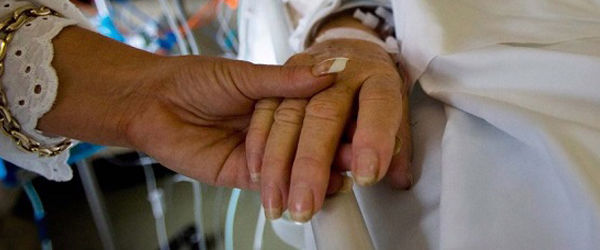On the morning of 9/11, I was about to hop in the shower when the phone rang and my husband told me it was one of the editors calling from The Chicago Sun-Times."How quickly can you get down here," he asked."I dunno, an hour, maybe," I said. "Why? What's up?""A plane hit the World Trade Center in New York," he said. "They think it's a terrorist attack.""What?" I shouted."Turn on your TV and get down here as soon as you can."The hours that followed still play in my mind like a horrible slide show. I threw on some clothes and bolted out the door, driving downtown in a panic while listening to the radio and scanning the skyline for airplanes.Please, God, I prayed, let this horror not be true.I parked my car on the top level of the garage and stopped to stare at the Sears Tower a few blocks away. "Oh my God," I prayed again. "Please protect us."After pitching in on calls to police and the FBI, I was asked to write something that would address the spiritual implications of the unfolding — and unthinkable — disaster. The only thing I could think to do was call a number of religious leaders and ask them the same question that I heard so many people asking that terrible Tuesday morning: Why would God allow this to happen?My favorite answer came from William Persell, who was then the Episcopal bishop of Chicago. "I see God operating through all the courage, the love and the support people are giving each other as they drag bodies from buildings and as they minister to the wounded and the bereaved across the nation," he told me. "I ultimately believe that love is more powerful than the evil we have experienced, and it will prevail."In the end, yes, love wins. That is true. But the truest answer I received came from the venerable scholar of American religion, Martin Marty, who told me, matter-of-factly: "I don't know, and nobody does."Ten years later, Marty's answer remains the best.In 2001, when I was a 30-year-old wife in a double-income-no-kids-one-cat family, the only person I had to answer that question for was myself. A decade later, however, as a mother, I am responsible for helping my son (who, on 9/11, wasn't yet 2 years old and living in a village in sub-Saharan Africa) grapple with that same unanswerable question.This year marks my son's third 9/11 anniversary in this country, but it's the first one where he's actually aware of what transpired at Ground Zero, the Pentagon and in a field in Pennsylvania.It came up a week or so ago when we were watching television and a commercial aired for an upcoming 10th anniversary special on the 9/11 attacks."What is that?" my son asked. "Did that really happen?"Yes, I answered, briefly explaining what happened 10 years ago, not anticipating the logical question that followed."Why?" he said.Although it seemed to placate my son's curiosity at the time, my answer, in retrospect, was feeble at best. The people who turned those airplanes into weapons of mass destruction were crazy. Sometimes people are so filled with hatred and fear that they do crazy, terrible things.While true, those statements provide little wisdom or solace. And they really don't get at the eternal problem of why — a question that is ultimately about the nature of good and evil and God.I suppose I could have tried to explain how the United States is viewed by some people in other parts of the world, about the power paradigms, religious zealotry, tribalism, foreign relations, economics, cultural perceptions, historical perspectives and so on.But none of that truly gets at the heart of the matter.None of that explains on a soul level why bad things happen to good people, why the innocent suffer, why there is hatred in a world that my son and I believe was created and ordered by a loving God — the same God who promises to be powerfully present in our suffering.None of those responses satisfactorily answer the WHY.If I have learned anything in the decade that has passed since terror became a visceral part of our daily reality, it is to be comfortable and satisfied with not knowing.When my family sits down to watch the 9/11 memorial specials that will air in the coming weeks, I hope to impart that difficult truth to my son. There are some things in this life that we never will understand."I don't know," is sometimes the only true response. That uncertainty is not only OK, it's sacred. Because the opposite of faith isn't doubt. It's certainty.Cathleen Falsani is the author of "Sin Boldly: A Field Guide for Grace" and the recent book, "The Dude Abides: The Gospel According to the Coen Brothers.”{gallery width=100 height=100}gallery/2011/0909/falsani/{/gallery}

